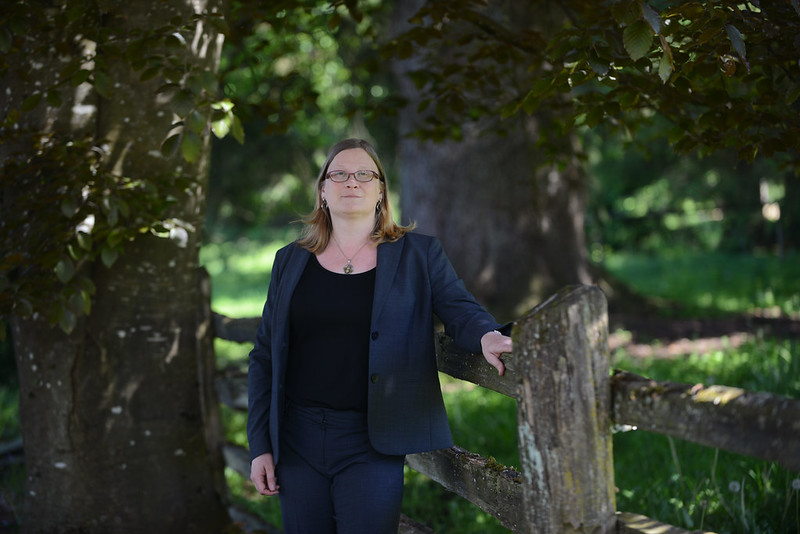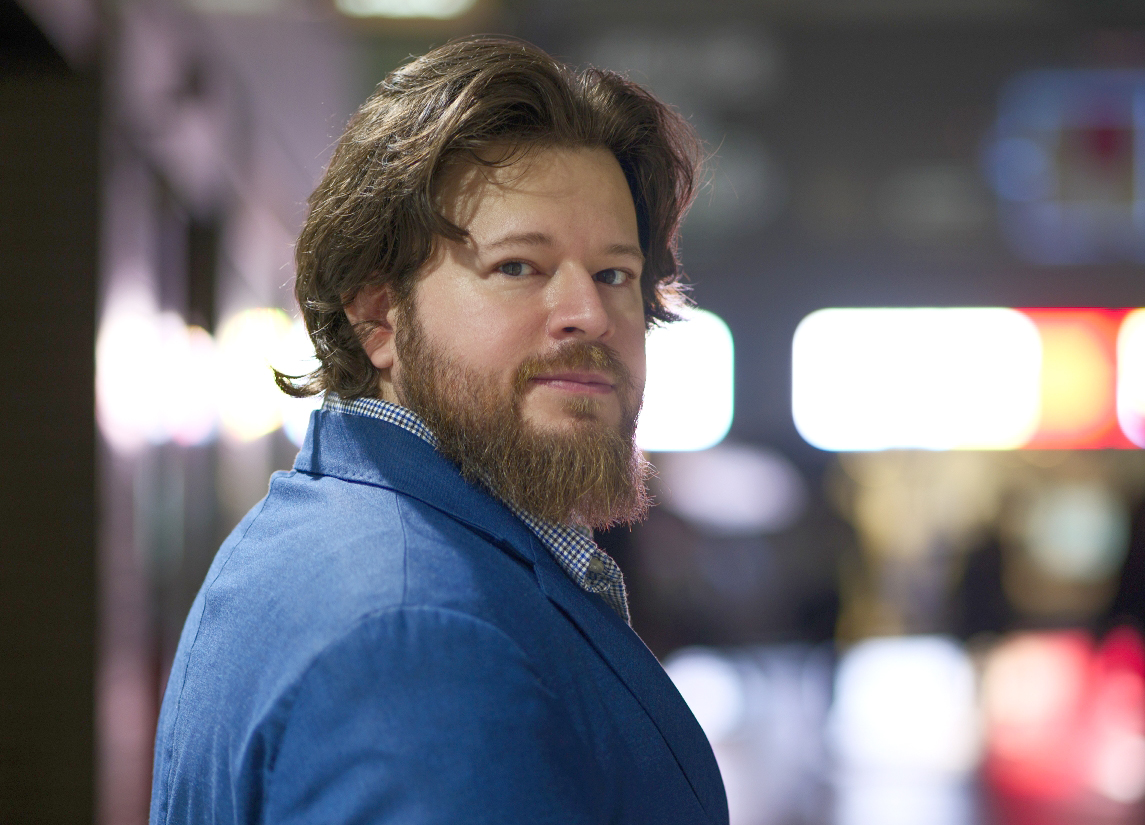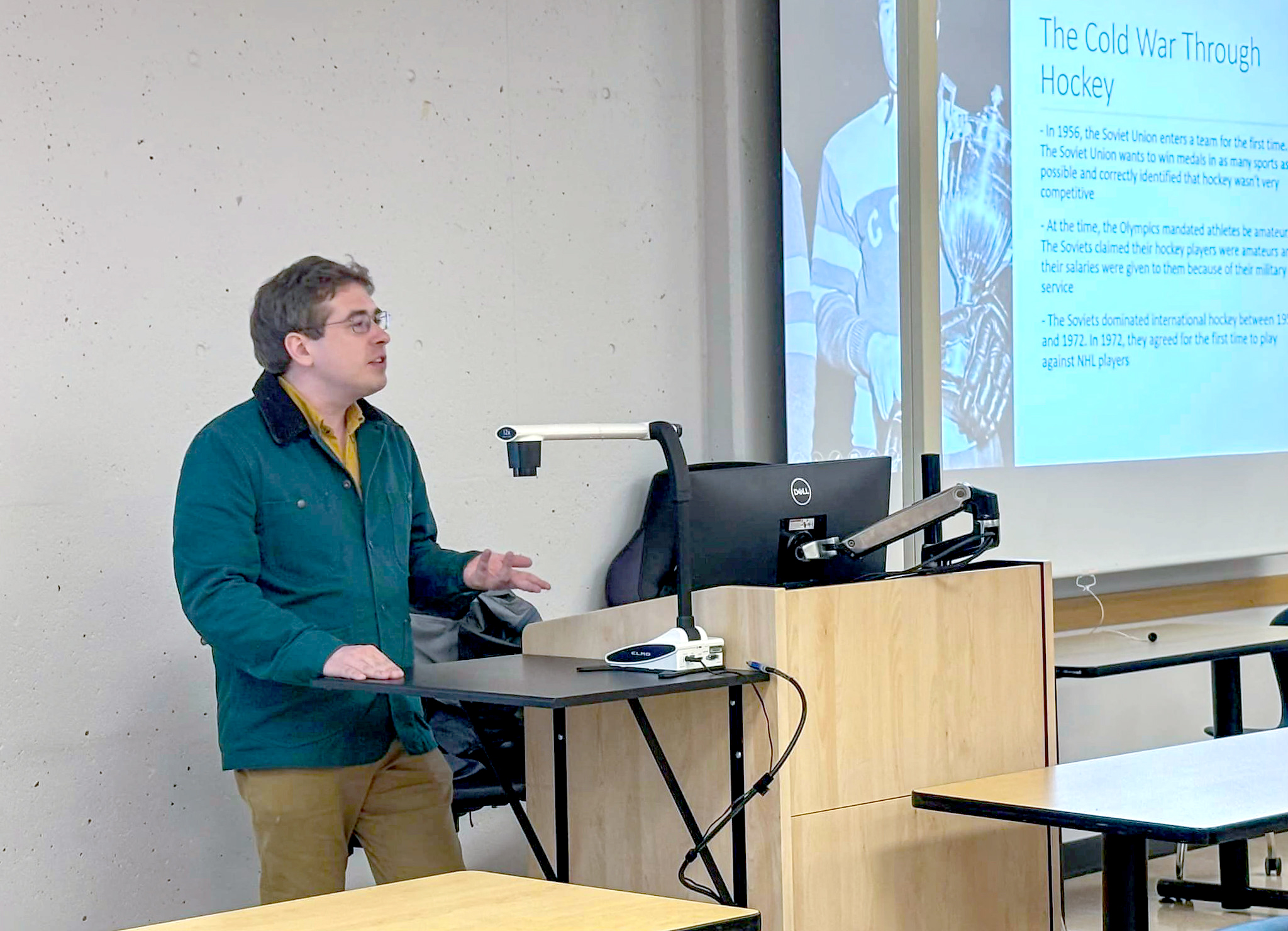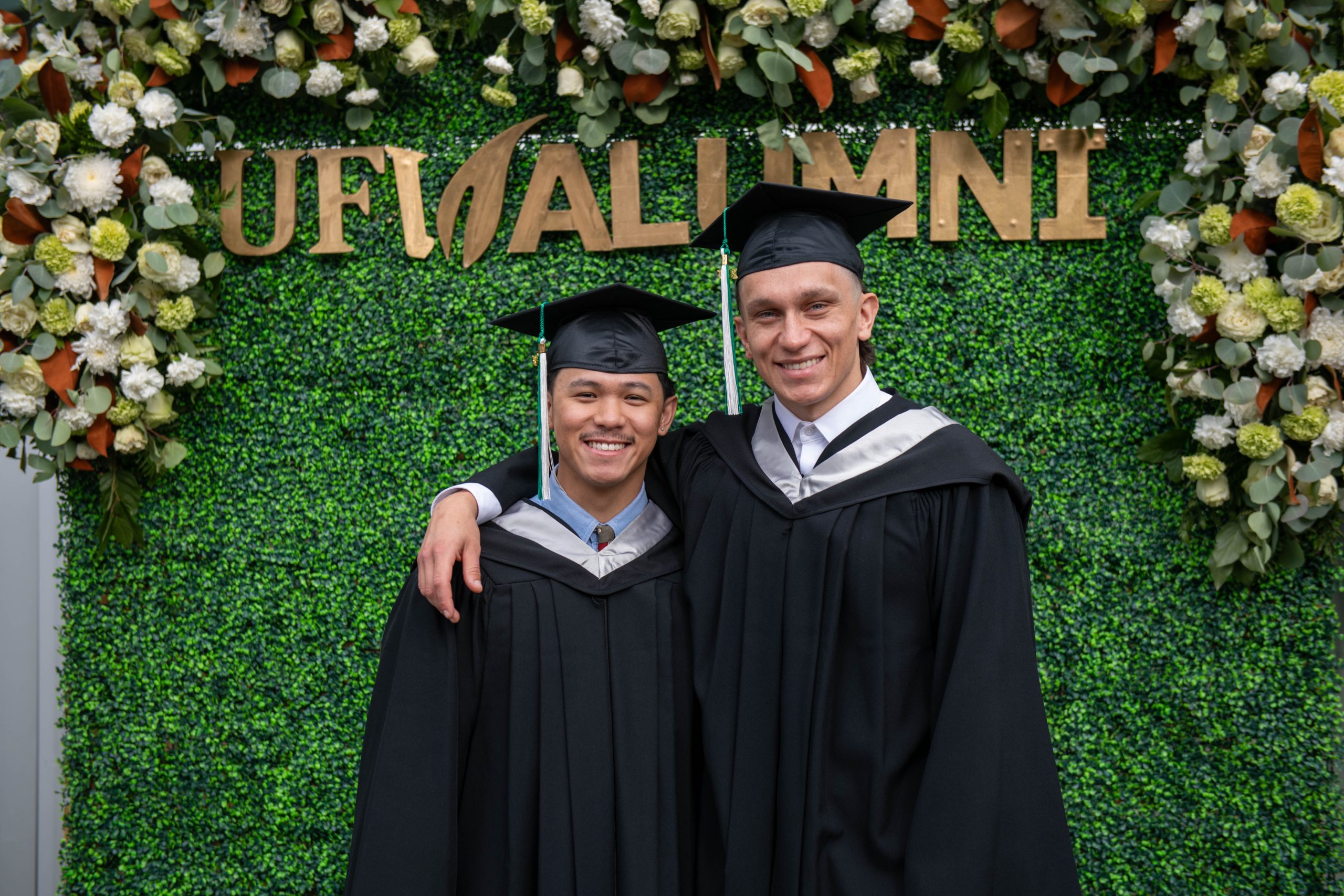Newman views One Health as a recipe for survival
 Dr. Lenore Newman views food security as an existential crisis for humanity, and she believes climate change is pushing the world in a dangerous direction.
Dr. Lenore Newman views food security as an existential crisis for humanity, and she believes climate change is pushing the world in a dangerous direction.
“As long as we can keep the world’s food systems working, no matter what else happens, we will be okay,” she says. “But if we lose the food, chaos erupts in a way that we probably don’t come back from. And right now, the global situation is very dire.”
The Director of UFV’s Food and Agriculture Institute (FAI), Lenore grew up in a fishing family on BC’s Sunshine Coast. She spent most of her childhood on the water, developing a deep connection to the world around her. From the birds that soared in the sky to the fish that danced underneath the ocean waves, she found it amazing how connected everything was, how one ocean-going creature might depend on another for survival.
She brings her childhood experience to her understanding of the core concept of One Health — that humans, animals, and the environment must thrive together as one connected system. One Health embodies what eight-year-old Lenore was seeing in those moments, suggesting that if one is out of sync, the other two feel it.
Proof of the concept came in 1995. Wanting to get away from fish for a while, Lenore packed her bags and journeyed to Moscow and Beijing, travelling inland through Siberia and Mongolia. This was soon after the Soviet Union fell, and she saw firsthand the environmental devastation that occurred during 70 years of communist rule. As she peered out the dusty windows of the Trans-Siberian Express railway, seeing acre after acre of badly neglected, mostly abandoned farmland, she felt a wave of sadness.
She also felt extremely fired up.
Lenore was aware of challenges facing the environment back then and assumed someone was doing something about it. When she returned to Canada, she was determined to become the someone doing something about it.
Fast forward 16 years to Lenore arriving at UFV as a freshly appointed Canada Research Chair and, eventually, Director of the newly formed FAI, supported by a recent $150,000 investment by the RBC Foundation. In that role, she has fulfilled her pledge to be a change maker many times over. Lenore has worked tirelessly with all levels of government promoting policies that enhance food security and aid the environment.
Under her guidance, Dr. Alesandros Glaros enthusiastically leads the FAI’s vertical agriculture team. Vertical farming uses stacked shelves and hydroponic/aquaponic growing to nurture various plants in a small indoor space. It is far more land-efficient than a conventional farm. Alesandros calls it “super water efficient,” with no pesticides required. If adopted on a large scale, vertical farming would allow B.C. to grow more of its own fruits and vegetables, and Lenore says that’s beneficial for all of us.
“We (FAI) did work for B.C. Coastal Health highlighting that in the winter, people are passing on healthy food in the grocery store because the produce coming from California just isn’t good enough,” she says with a frown. “They’re looking at lettuce in January and it’s expensive and poor quality and because of that they’re not eating it.
“That’s a problem because Canadians eat about twice as much protein as we need, and we eat too many carbs because they’re cheap and abundant. But we only eat about a third of the fruit and veggies we should.”
Dr. Stefania Pizzirani, Associate Director of the FAI, is working on a $2.5 million project funded by Genome Canada, studying the social and cultural impacts and opportunities associated with agri-genomic food technologies including cellular agriculture — the science of producing animal products (meat, dairy) directly from cells, not live animals.
The FAI is also addressing another key aspect of food system success by developing training programs for entrepreneurs to help them align with venture capitalists, attain funding, and get their agricultural technology to market. Lenore has launched many startups in her career and says it’s a challenge “working without a net.”
“There’s a hundred things you’ve got to do with a startup, from getting your people and tech ready, to building out your runway while securing funding,” she explains. “At any time, you can run into policy or legal challenges, or something that doesn’t work. Thirty percent fail in the first two years and 50 percent fail in the first five years. Only one in 10 make it all the way.”
But when it does work out, she says there’s no bigger thrill.
“Nothing beats bringing an idea to fruition,” she says with a smile.
Lenore’s passion shines through as she discusses entrepreneurship and how it relates to the FAI’s many projects. She nearly pounds the table when she talks about food security and environmental solutions being grounded in science (including social science) and not in popularity.
“The challenge with some of the things I propose is that one sector of government loves it while another sector hates it,” she says. “But the science tells us what to do, and we have to follow the science if we’re going to feed everyone.”
Lenore tirelessly encourages governments to reduce red tape and get out of the way of innovators who possess the will and drive to make a difference. She is part of the Brain Trust at XPRIZE, an organization dedicated to inspiring
and empowering humanity to achieve breakthroughs that accelerate an equitable, abundant future for all.
Underpinning everything Lenore does is the idea of One Health. Right now, the environment is suffering in a way that is unprecedented in recorded history. Humans and animals are suffering alongside it.
At UFV, she is spearheading a transdisciplinary approach that brings seemingly unrelated areas of study together — agriculture, medicine, kinesiology, food security, veterinary studies, environmental studies, and ecosystem science to address complex issues that impact humans, animals, and the environment.
Working together, she hopes UFV’s talented researchers can create solutions they wouldn’t come up working alone.
“UFV has a track record of working across disciplines to serve our community with applied research and teaching,” Lenore says. “No one can solve the problems we face on their own, but together, our UFV team has unlimited potential to make the world a better place.”




